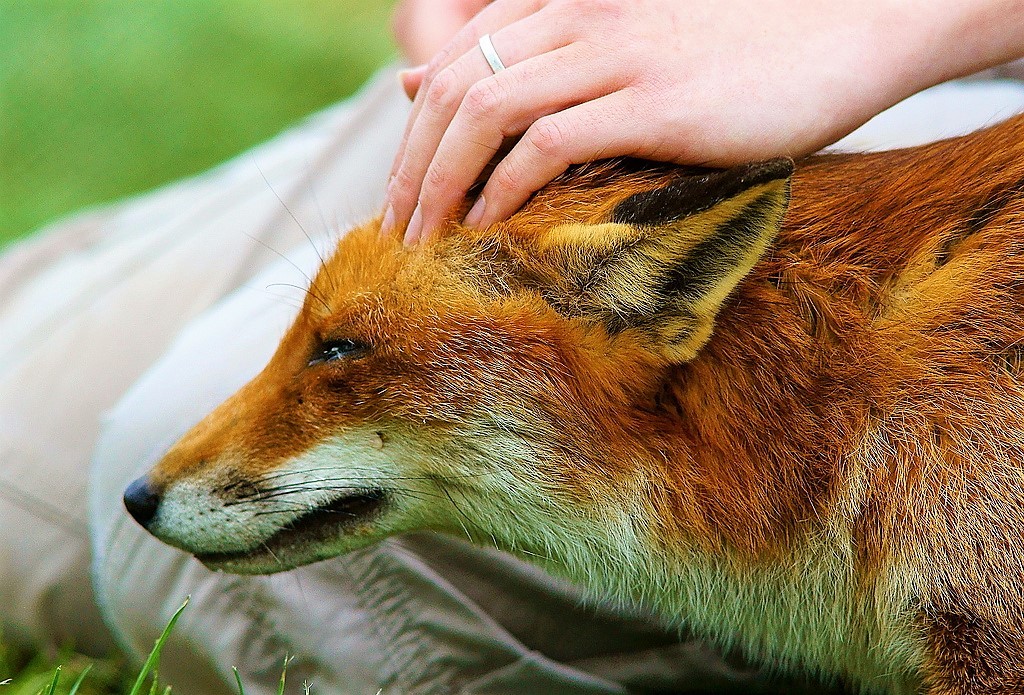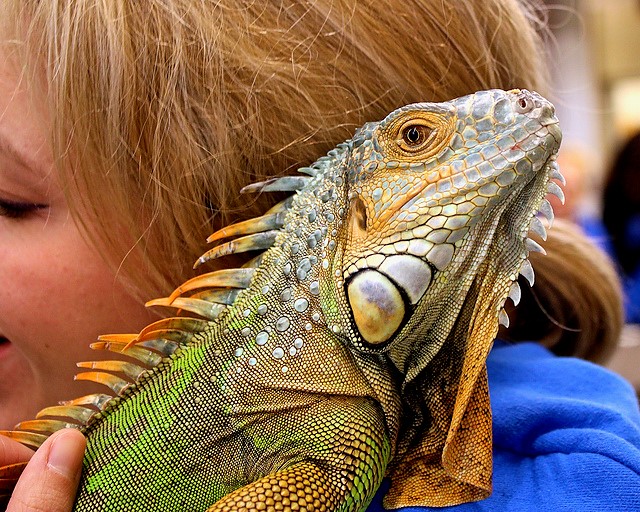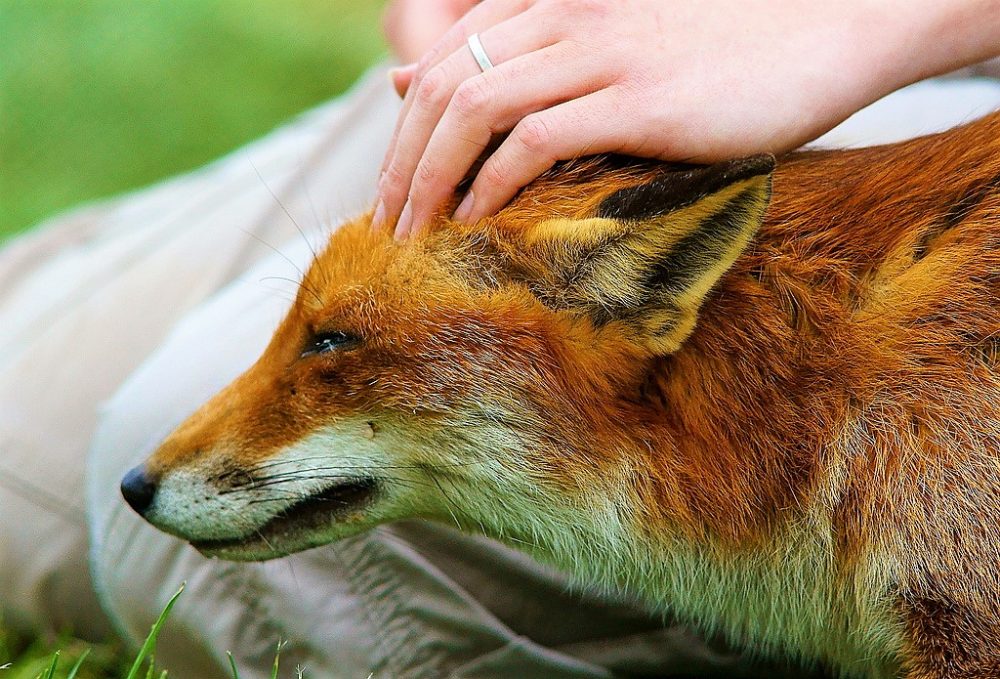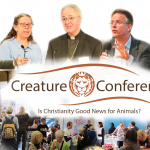In this transcript from the 2017 Creature Conference, Dr Margaret Adam, theologian, ethicist and visiting tutor at St Stephen’s House, Oxford argues that Christians should care about animals because of who and how they are called to be.

Why should Christians care for animals? Answers abound: because animals suffer from human cruelty; because animals are sentient, feeling creatures; because from creation God calls upon humans to exercise responsibility for animals; because animals are creatures in their own right and not for humans to use; because contemporary factory farming abuses animals in ways previously unimaginable. David Clough and Bishop Arnold spoke this morning about drawing connections between Christians and animals. I’d like to continue in that vein, with more considerations about what’s Christian about Christian animal advocacy.
The short answer: Christians should care about animals, because of who and how Christians are called to be.
The longer answer comes in four parts.
Why should Christians care about animals?
1. Christians are members of the body of Christ.
The primary identity of a Christian is a body-member, interconnected with all the other body members, incorporated into the body of Jesus Christ. This means that we are both human bodies like this, tangled up with each other in Christ, AND, somehow, not-yet-resurrected bodies, waiting for the reconciliation of all creation, in the resurrected and ascended body of Christ. As embodied humans, now we are limited by brokenness, confined by finitude, and constrained by systemic sin. As humans embodied in Christ’s body, we hope to be resurrected bodies in the salvation of the world. We hope to be fully-human in the presence of God, and abiding peaceably with all creatures. Christians claim to be citizens of both worlds: these bodies, in the body that is the church; and resurrected bodies, reconciled to each other and the cosmos.
Christians, in and as the body of Christ, are most fully Christians when the citizenship we know now turns toward the citizenship of reconciliation-to-come, when this citizenship reflects citizenship in the peaceable kingdom as much as possible, now.
If we only claim citizenship in this world, then we could plausibly focus only on what seems realistic, practical, and economically productive: violence is sometimes necessary, factory farming is effective, animal suffering can’t be avoided, animals–like humans–are going to die anyway. If we understand ourselves to be completely bound by limited resources and death, we might assume that killing animals for our food and comfort is our only option.
But, this is not our only citizenship. Violence, scarcity, and death do not have the last word. Our bodies are not primarily governed by conflict with the rest of creation. Christians should care about animals, because through the resurrected body of Christ, we are also citizens in the peaceable kingdom, in which humans and animals and all of creation flourish.
Why should Christians care about animals?
2. Christians should care about animals, because we don’t have to make a difference.
 Animal advocacy may seem ineffective. It might not change the world. It might not make a visible impact on the lives of very many animals. It is an unprofitable enterprise. In other words, animal advocacy fits the pattern of Christian discipleship perfectly.
Animal advocacy may seem ineffective. It might not change the world. It might not make a visible impact on the lives of very many animals. It is an unprofitable enterprise. In other words, animal advocacy fits the pattern of Christian discipleship perfectly.
Christians don’t have to determine what to do and how to do it based on making a difference in the world, because Jesus Christ makes the difference. It’s not our job to bring about the redemption of the world. Our job is to share glimpses of the difference Christ makes. Our job is to demonstrate the radically impractical conviction that one lamb’s rescue is worth any cost.
Missionaries continue their work of faithful presence and service even if there are no converts for years and years. Quiet acts of charity and ministry remain faithful responses to Christ’s love, even without an quantitative assessment. At present, factory farming ruins the lives of countless animals by treating them as mere products for consumption. We can and should try to persuade multinational corporations to change their policies. But, in the meantime, immoderate showers of comfort for afflicted creatures can witness to the divinely limitless love and comfort that perseveres beyond death. Christians can share glimpses of life freed from death, with a non-strategic, extravagant, implausible passion for the quality of life of even just one of the least of God’s creatures.
If Jesus Christ dis-empowers death with persevering love, if our primary citizenship is the body of Christ that perseveres despite death, then that resurrection citizenship should shape who we are now and direct what we do today–whether or not our efforts seem to make a difference. Christians reach out to the needy because our job is to reflect the promise of heaven in how we live on earth.
Do we believe that Christ’s reconciliation of the cosmos is greater than the financial practicalities of mass producing hamburgers? If we do, then we can choose a bean burger over a beef burger as a reflection of that belief even if we can’t demonstrate that one bean burger will transform industrial factory farming. Christians should care about animals, because the body of Christ should behave as if the peaceable kingdom is real. Get to know a chicken. Find out where a pig likes to be scratched. Don’t step on that snail. Love them. They are groaning with us, with all of creation, for Christ’s reconciliation.
Why should Christians care about animals?
3. Christians should care about animals, because we aim to be of one mind with other Christians.
Some Christians provide faithful, persuasive examples of discipleship that we have not yet taken on ourselves. We should not dismiss them as another sort of Christians, as if it makes sense for there to be Christians for Animals, Christians for Economic Justice, Christians for Refugees, and Christians for Normal Stuff. We are all Christians for Christ.
As one body, we can learn from each other about how to be more and more fully for Christ in all we do. No one individual can be an expert in all manifestations of love, anymore than one individual can be all parts of the body. We can’t all be experts on animals, social justice, refugees, and racism, but, we can support and cooperate with each other. We can claim primary allegiance to Christ, together, AND learn to increase charity and compassion for animals now.
Christians should care about animals because we are striving to be of one mind with other members of Christ’s body, and–right this minute, in this room,–some of those members are being pretty persuasive about why and how we should care for animals.
Why should Christians care about animals?
4. Christians should care about animals because so much of what we do as Christians already involves and makes space for animal care.
 For example, as Christians, we gather together for worship.
For example, as Christians, we gather together for worship.
Usually, we dress before we gather. We discern how much of our wardrobe is made through the suffering and death of animals.
We often eat before we leave for church, and we often eat at church gatherings. We discern which foods to purchase and prepare. Food made from animals? Food made from animals who have never been allowed to flourish? Food made from plants?
When we gather for worship, we praise God. We learn about God through God’s creation. The animals teach us, the birds in the sky tell us, the fish in the sea inform us what the LORD does (Job 12). We praise God with sea monsters and fish, wild animals and domesticated animals, creeping animals and flying birds ( Ps 148). We learn about how to praise God in part from the example of animals whose flourishing itself is praise.
Together in worship, we pray for those in need. If we are attentive, we are always learning about the needs of other: people and animals. Now we are learning more and more about how humans mutilate, torture, and mass-produce animals for profit. So many animals to pray for–is there really enough time to pray for people AND animals, in the allotted time for corporate, intercessory prayer? Fortunately, we are called to pray without ceasing–or at least, to pray a bit more, together and on our own. We know that God will not be overwhelmed by the volume of prayers. And if we don’t pray for animals, we are acting as if God’s love and power only covers humans.
In worship, we confess our sins together. After praising with animals and praying for their protection, we ask forgiveness for our own hurtful actions and inactions. We ask forgiveness for the ways that our lives have not reflected the hope of redemption for the world.
In petitions, we pray for strength and for divine assistance to re-turn ourselves toward salvation, to re-direct our energies from selfish greed to charitable compassion for those in need–because we want to reflect on earth the new creation Christ brings about in heaven.
At the Eucharist, we receive the body and blood of Christ–the flesh of Jesus Christ in the form of food from plants, not animals–the body and blood that renews our identity as Christ’s body. We die with Christ and Christ draws us toward the renewed creation which is not defined by death and consumption.
Then, we go forth rejoicing. This might be the most difficult of all–to walk as we have worshipped, to praise with animals, to care for animals, to do the things we ought to have done, to take on the strength we’ve requested, and to be transformed. But, we don’t do it alone. We go forth in the company of the church body, and we hold each other accountable to the identity we claim in Christ.
And so, in all these ways: Christians should care for animals, because we are members of Christ’s living, dying, resurrected body, bound for the peaceable kingdom of reconciled creation.
Dr Margaret Adam is a theologian, ethicist, author and former lecturer at Loyola University Maryland and the University of Glasgow. She is currently a Visiting Tutor at St Stephen’s House, University of Oxford.
This keynote speech was first given at the Creature Conference at Oasis Auditorium on Saturday 18th March 2017.




